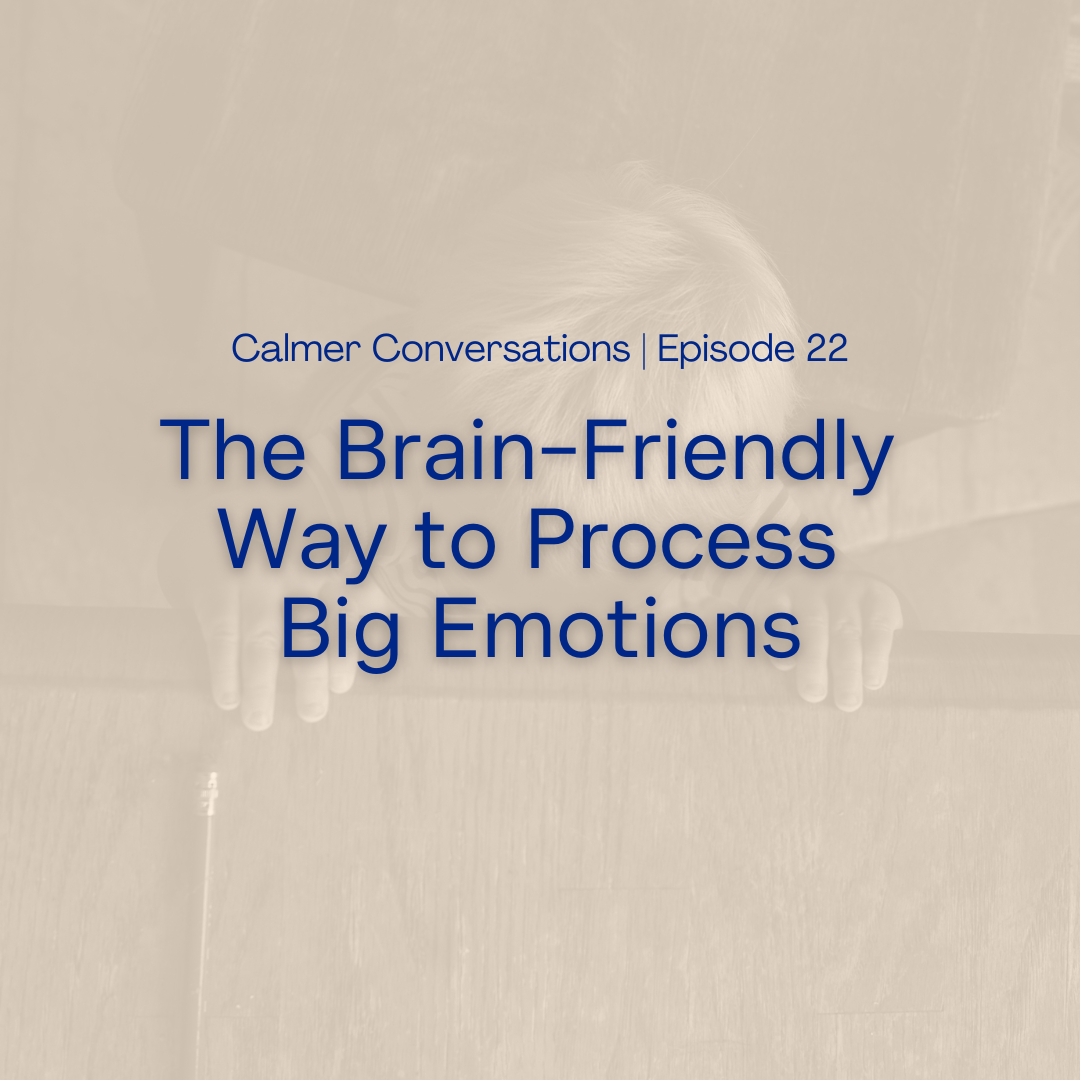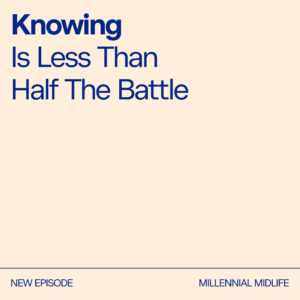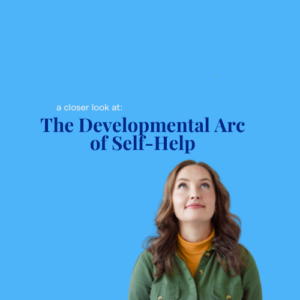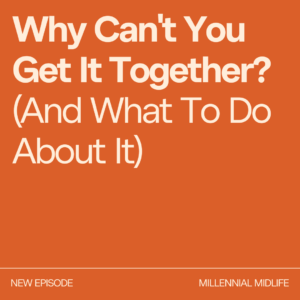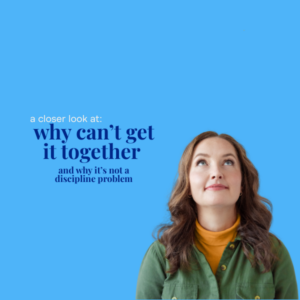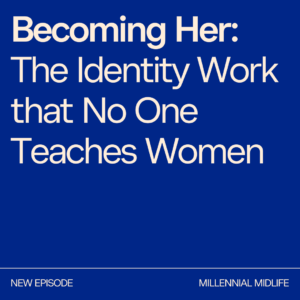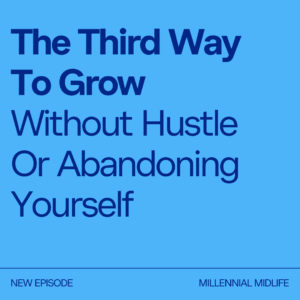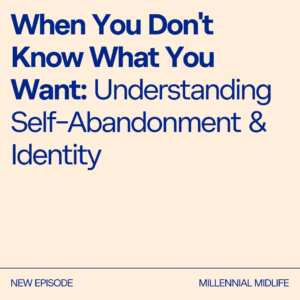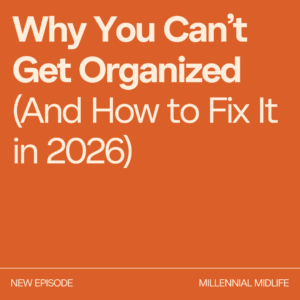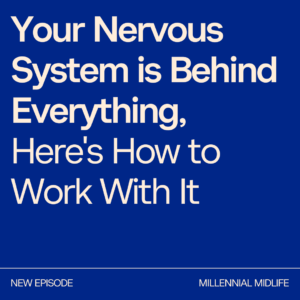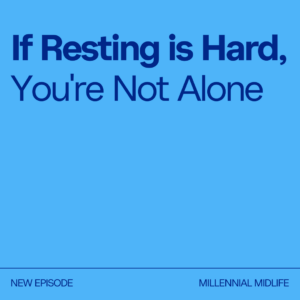Cecelia Baum Mandryk (00:03.116)
Hey and welcome to Calmer Conversations. I’m Cecilia, your host. This is episode 22. Today we’re going to talk all about how to remain calm and collected around other people’s emotions, specifically when other people are having big emotions. And I know that this is something, I’m recording this and it’s gonna kind of come out during the holiday season.
So this is something that I know comes up a lot when we’re around family or we’re in kind of more stressful situations. But it’s just something that most of us deal with a lot of the time. And this is something that we’ve talked about in the Calmer Brain Club and different lessons and things like that. And so I thought it might be helpful to have here for everybody to enjoy and to get something from. So if you are somebody who
has a reaction, any kind of reaction to other people having big feelings, this is for you. So let’s dive in. I want to start out by reminding you that nobody can cause an emotional reaction in you. And so no one can make you feel a certain way. How you feel is related to the thoughts that you’re having and the patterning of your nervous system.
It can feel like we absorb other people’s feelings, but that’s generally because we have some sort of habit, some sort of history of noticing other people’s emotions and trying to take them on or take care of them in some way. And this was, it was beneficial to us. It was advantageous in some way in our history, probably when we were children, probably with our family of origin or other people that were important to us when we were younger or important.
to our survival. But now that you’re an adult, and I’m going to go ahead and assume that you’re an adult if you’re listening to this, you actually get to take responsibility for your own emotional state. And so one of the most important things in this entire episode is understanding and making the choice to take responsibility for how you feel at any point in time. And this is kind of despite what’s happening around you, despite
Cecelia Baum Mandryk (02:20.984)
the circumstances that you’re in or what’s happening in the world or what’s happening with other people. Recognizing I actually have a choice with how I feel and when I connect and can be with how I feel, I have some say. You could use control, but control always feels a little bit tight for me, but I have some say in how I feel moment to moment, day to day.
And that’s important for this because if we are always relying on other people for how we feel, that means we’re always kind of at the whims of what’s happening around us. If we’re relying on what’s happening in our circumstances or in the world around us for how we feel, then it means that we don’t actually have any kind of say in how we feel. And that’s just not a philosophy that I buy into. don’t find it, I find it very disempowering.
I mean, it’s something that I subscribed to for a long time and was taught, but it’s something that I don’t think is helpful for me as an adult because I actually want to have some say in how I feel. And I will say that having done this work for a number of years, both individually and with clients, is that when we do take responsibility for our own emotional state, when you do say that I have some say in this, all of a sudden you do step back into empowerment and you do actually recognize where you have a lot of choice. So.
I know that this can be an area where it feels like you don’t have choice or you don’t have say and it feels like everything is just happening around you or to you. But I want to offer that if you can perhaps just drop that story for a little while and maybe even try it for 30 days or some period of time, you might start to recognize that you can have a different experience with other people. The other thing I want to say about that is that oftentimes we believe
that for instance, if someone is feeling angry or someone is feeling anxious, if we join them in that place, that it can make it easier for them, like we’ll kind of lighten their load. Or it’s our job to try and fix something for somebody else, right? So it’s our job to try and make them feel better. We feel really uncomfortable with them having uncomfortable emotions, which means that we probably don’t feel comfortable with those emotions generally, but we want
Cecelia Baum Mandryk (04:36.936)
them, we want to fix things for them. And usually why we want to fix things for other people or get them to feel better is because of what I just said. We are uncomfortable with their emotions. We are uncomfortable with being around people who are having big emotions, who are experiencing big things, and we want to feel comfortable again. So we want them to be comfortable so that we can feel comfortable. Just starts to get a little convoluted when you’re talking about it.
and also create some really interesting energetic exchanges between you and the humans around you. So essentially what we’re trying to say is, as children, essentially we’re trying to perhaps get a parent or a caregiver back into a place where they can care for us more fully. And so we are trying to kind of move them back into a different emotional space for our own survival. As adults,
We have learned that specific like certain emotions are uncomfortable or they’re dangerous or we should rush through them. We learned that as kids too. We don’t like how they feel. We don’t like how they feel in us. We don’t have we like how they feel in other people. And so we really want people to get to the other side of it so that we can stop feeling uncomfortable. And I think one place you can see this really clearly is generally with children.
So if you can think back to the last time you saw a kid having a tantrum or some kind of emotional experience in a big way, a lot of times the adults they’re with are trying to get them to be quiet because they might even hear them say like, stop embarrassing me, right? They’re trying to rush them through it and they’re trying to get them to a place of being okay generally so that there’s not a scene of some kind, right? So they don’t have to feel uncomfortable. So they don’t have to take, they don’t have to.
quote-unquote answer for what’s happening. But we do this as adults all the time, right? And so you might actually ask yourself right now, is there an emotion that I know that I feel really uncomfortable around? For some people that’s anger, for other people that’s anxiety, you know, it could be like disappointment or shame or something. You might have one that feels like, I really don’t like being around that. I really don’t like being around people when they’re feeling frustrated and angry. It feels really uncomfortable for me. And as soon as you
Cecelia Baum Mandryk (06:52.094)
name that you might also be able to quickly remember the story or remember something in your past about like, right, that’s why this feels uncomfortable, right? I was around one of my parents was angry a lot as a kid and that meant that, I don’t know, things were harder in our household. And so I feel really uncomfortable around it and I really want it to end very quickly. So what we generally try and do to get it to end is we try and
meet the person in that emotional space and we try and fix it in some way, right? We try and rush them through it so that we can feel okay. A different approach that doesn’t rely on other people changing, because that’s a pretty unreliable way to feel good, and we can all probably agree, getting other people to do things so that we can feel a certain way, generally just doesn’t, it’s not sustainable and it’s not reliable as a method. You might even check in with yourself.
Is this working for me? And if it’s not, or if it is working, then you can just stop listening to the episode right now. But if it isn’t working for you, then you might wanna try a different path, right? And so the different path that I wanna suggest is that in the same way that you can start to recognize the emotional experience that you are having, you might start to recognize the emotional experience that somebody else is having. So for instance,
You might, your partner might come home from work and they might feel angry or frustrated at something. And let’s say that’s the emotion that’s hard for you. You might be able to sense and pick up on that. And generally you might get into a people pleasing mode or you might make yourself small. You might kind of like shrink, you might fawn. And if you think about that as a nervous system reaction, you might also freeze. You might also try and get like defensive and fight and kind of like.
make the case for why your day was harder and you should be the one who’s getting sympathy right now. You know, we can go many different ways, but you can recognize your own emotional response to this person. And that might actually be the key for you. But wherever you start just recognizing, okay, somebody in my space, some person that’s in my life is having an emotion, right? So you can name it for yourself if you want to. It seems like they’re angry.
Cecelia Baum Mandryk (09:02.07)
You don’t have to say it out loud to them, but naming it for yourself is really powerful and seeing if you can start to create some safety while they’re having this emotion. Right? So you can remind yourself right now and don’t lie to yourself here, please. But if if they are angry and you are safe or if they are anxious and you are safe, you can tell yourself this person is feeling anxious.
It’s safe for me to be in the presence of somebody who’s feeling anxious And then start to check in with your own emotions Right now. I feel uncomfortable with them being anxious. It’s making me feel And start to fill in the blanks here, right? And if you don’t if you can’t identify the actual emotion that you’re feeling you might just think about what’s happening or start to connect with what’s happening in your physical body This is what’s happening to my physical body right now. This is what i’m going through in this
And in this way, what you start to do is you start to allow the other person to have their emotional experience and you start to disentangle your emotional experience from their emotional experience. So that now instead of having one giant emotional experience, you are having two separate emotional experiences. And you can start to recognize that it is okay and safe for them to have an emotional experience in the presence of you and that you don’t actually have to take it on or fix it in any way.
And in fact, one of the most generous things you can generally do for somebody else is allow them to have an emotional experience and not make it mean anything about you and not need them to fix it or change it so that you can feel safe. And this is a really powerful thing to do from like babies and toddlers all the way up to like, you know, your great grandparents if they’re still around and you’re with them, right? So all ages, this is powerful. To recognize somebody else is having an emotion and instead of
getting entangled in it and making it about yourself and trying to get them to change so you can feel safe or trying to rush them through it in some way, allowing them to have it. Right? And you can say this out loud, this works really well with kids, right? You name it for them. You’re feeling frustrated right now. And you might even, you know, empathize with them and say like, I understand why you’re feeling frustrated. I would feel frustrated too if I had to leave the playground and I was having a good time. I get that.
Cecelia Baum Mandryk (11:22.346)
And what you’re doing in that moment is you’re allowing them to have the emotional experience. You’re validating the feelings that they’re actually having. You’re not rushing them through it in any way. You’re helping them name and allow the emotion. And this is like, if you know, if you’ve been listening, this is what we do, right? We name things, we notice them, we name them. We see if we can allow them and be with them. And then we start to notice how our body naturally processes and shifts and changes.
how we experience something because all of sudden we’ve stopped resisting it. And the reason why that happens is as soon as you stop resisting something and you start allowing something, which isn’t condoning, as soon as you start allowing something, your nervous system goes back into a regulated space or closer to a regulated space, which means that you are suddenly available for co-regulation in a positive direction within the relationship. And for a kid, that might mean giving them a hug or holding them, but really,
just being near somebody and they’ve done all kinds of really cool studies on this if someone enters the space and is regulated they actually bring regulation to the space right so instead of joining in somebody’s anxiousness and upping the anxiousness of the environment what you’re doing when you allow them to have their experience and you create safety for yourself and process your own emotions is you bring yourself back into regulation which not only releases them from
needing to make you feel okay, but it also brings regulation to the entire environment, which will allow them to move from resistance into allowance, which will allow them to process emotions, which means that if you actually do want to help somebody move through a hard emotional experience, this is the one of the most powerful ways to do it, because you’re helping them co-regulate. You’re helping them find nervous system regulation for themselves.
and you’ve released yourself from being responsible for their emotions. So you’ve stepped back into taking responsibility for your emotions, you’ve released them from being responsible for your emotions, you’ve released yourself from being responsible for their emotions, and all of a sudden you can start to just be with them. And this sounds really wild, but in the same way that once you’re okay with your own emotions, things like shame and grief and anxiety,
Cecelia Baum Mandryk (13:43.05)
suddenly don’t feel so big and heavy and overwhelming. And that same way, you can be with somebody who is having other big emotions and it doesn’t feel quite so overwhelming. It doesn’t feel quite so big. It doesn’t feel quite so like, how do I fix this? I have to fix this, like rushing around to try and feel safe. We can just let somebody else be and then you get to be as well. And this disentanglement and
Taking responsibility for your own emotions while releasing responsibility for other people’s consciously, intentionally means that all of a sudden you get to have, I don’t love this word, but this is the word that always comes into my brain, you can have a cleaner emotional experience with other people, right? It’s less messy. And what that means is it just gets everybody to a place of being okay with their emotions quicker and then our bodies and nervous system gets to do what they do, which is process emotions.
So how you might use this during the holiday season, since that’s where we are right now, is if you’re at a family event and you have this kind of pattern of interaction with maybe a sibling or an uncle or maybe parents or kids or something like that, knowing you can even think about it ahead of time, right? Like generally this is what happens, right? I go in, I say something, my dad has this reaction, I feel disappointed or annoyed at him, then he gets this way, then I get this way.
And you might just say, okay, what if I could feel safe when he has whatever reaction he has? What if I didn’t expect him to do anything specific when I share something? What if I could just notice his emotions and I could notice my emotions and I didn’t try and take care of his or somebody else’s, but I only was watching and responsible for my own? If I was able to say they’re having that emotional experience, I can be safe, right?
I can create safety for myself, can allow my own emotions, even if they’re really uncomfortable, I can see if I can do it even just for 10 seconds, and then see how the entire environment shifts and changes. Again, not because anyone else has changed, but because you’ve changed. So this is, I mean, it’s such a powerful way of approaching being with other people. It’s such a powerful way to allow people to have their own experience of.
Cecelia Baum Mandryk (16:05.058)
their life and of circumstances. And it is incredibly freeing. And it’s very empowering because all of sudden you get to take care of you and you get to work on the one thing that you actually you have some control or say in, which is your own experience. Again, by working with your nervous system, by working with your brain. If you want a primer on how to just process an emotion quickly,
I have a mini course called the five minute shift, is $29. You can just go in there. There’s a five minute kind of leading you through how to process an emotion. You can watch that or there’s a video that’s a little over 30 minutes that kind of takes you through the process a little bit more in depth. You can go in there. You can start to feel different today, but you can then use this over and over again as a practice to start to feel different, both with your own emotions and with other people’s emotions. And then if you want coaching, you want to learn more about this, come join the club.
Get coaching on your own brain, figure out your own stories, figure out why you’re feeling this way so that you can start to feel differently. Thank you so much for being here. Thank you so much for tuning in today and I will see you next time.

